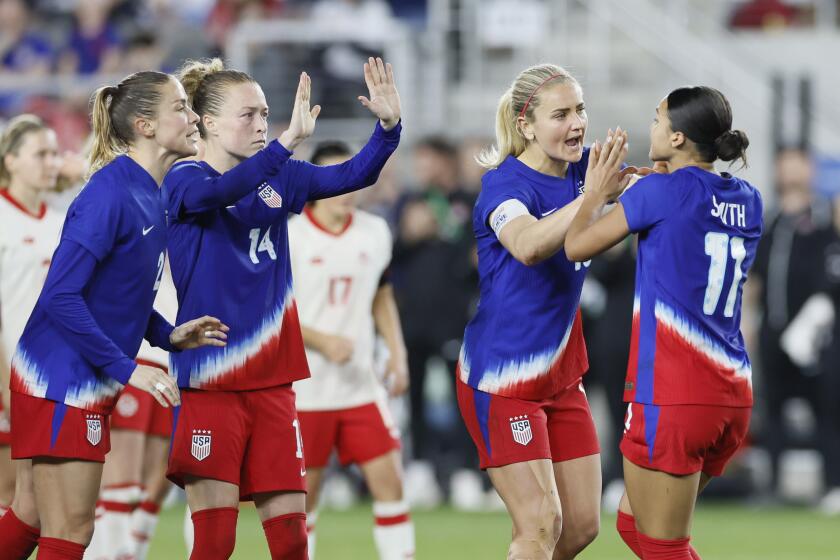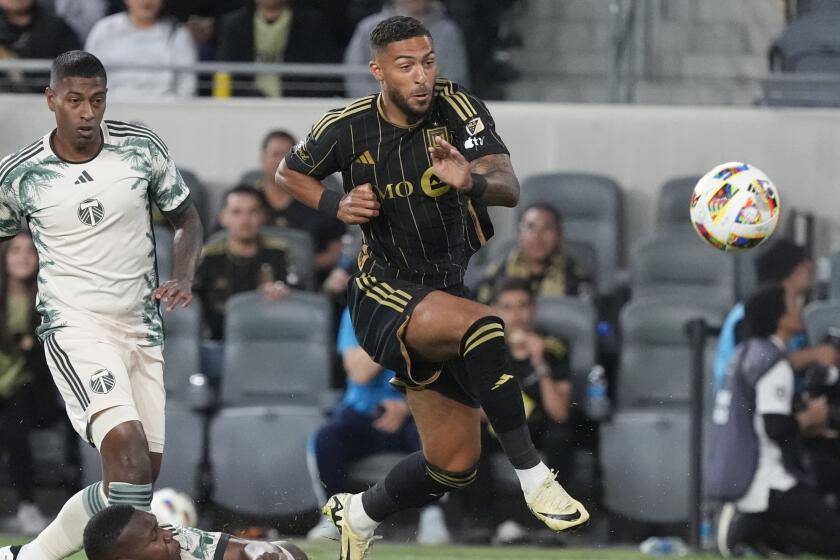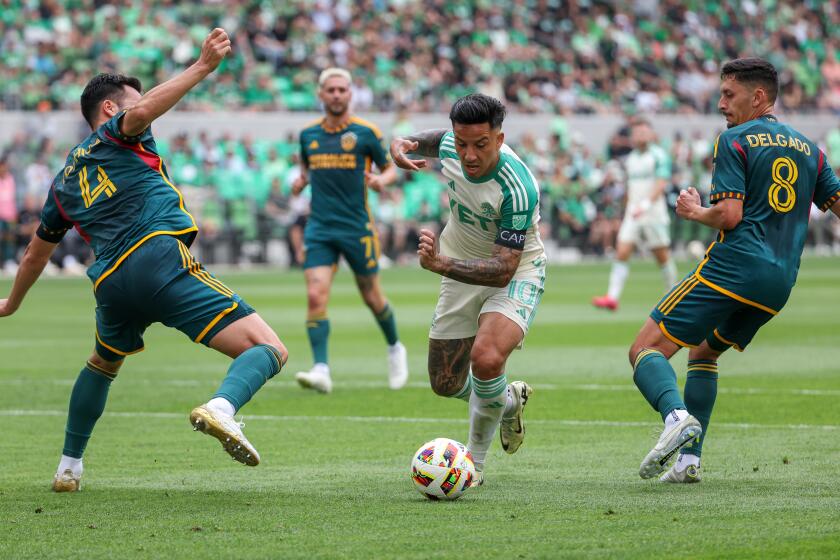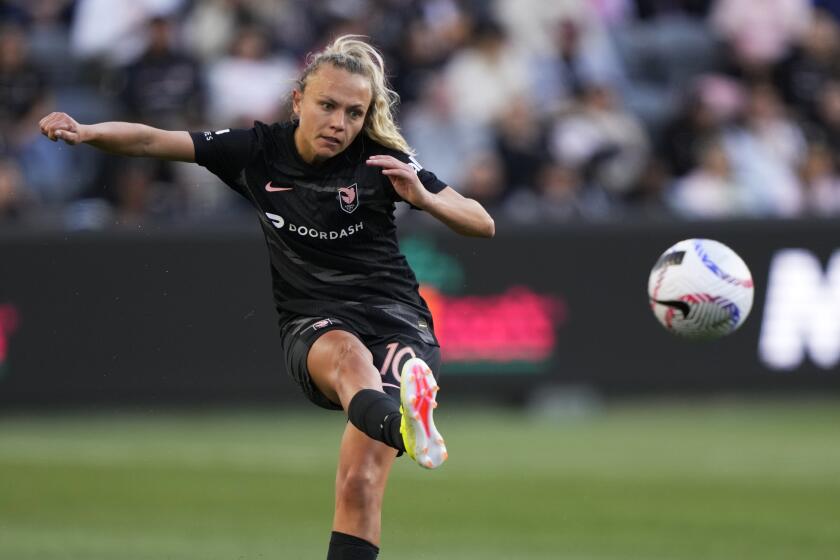Column: Upon further review, MLS embraces use of video replay
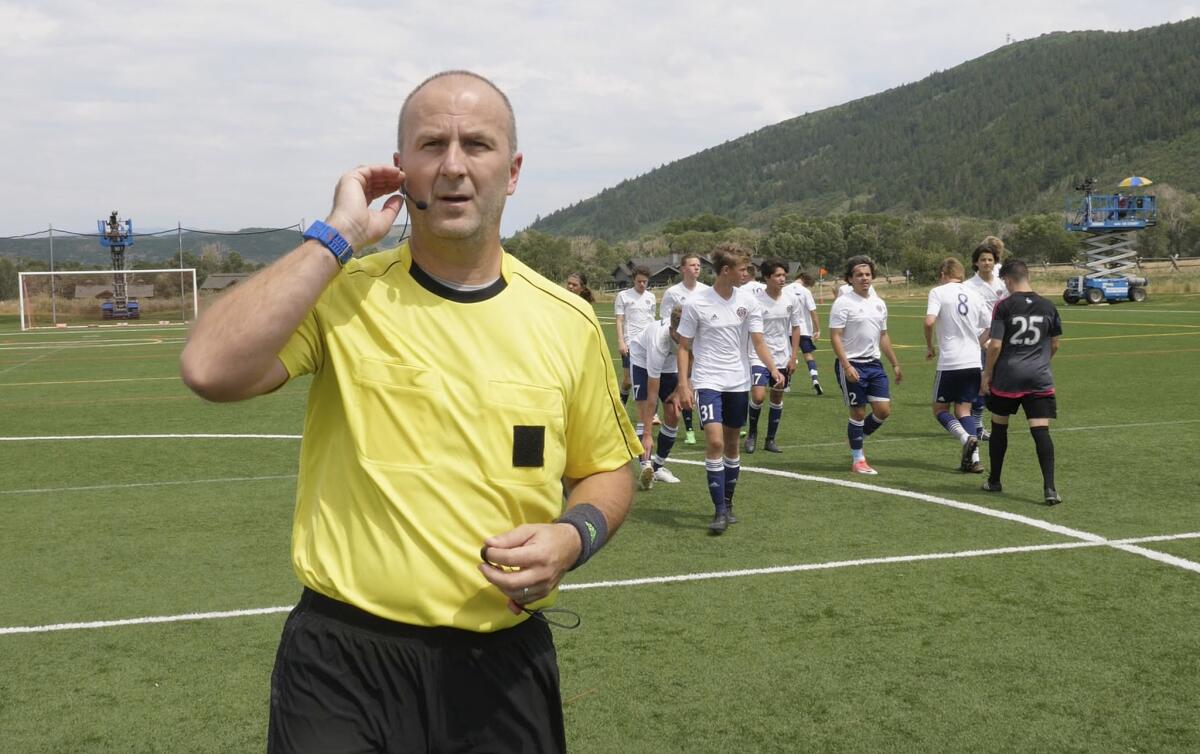
Howard Webb is widely recognized as one of the top soccer referees of all-time. But even he remains haunted by a call he got wrong.
After Nigel de Jong of the Netherlands flattened Spain’s Xabi Alonso early in the 2010 World Cup final, Webb gave De Jong a yellow card — though replays clearly showed a vicious, studs-up kick to the chest that deserved a straight red. Nearly a billion TV viewers worldwide knew the referee had made a mistake but Webb, the only person who could fix that, didn’t have access to the video.
“I would absolutely overturn that call,” Webb says now. “That was an example of clear error.”
The experience helped make Webb both a vocal proponent of video replay in soccer and the perfect man to implement the use of video assistant referees, or VAR, in MLS. Last weekend the league became one of the first in the world to implement the video review initiative in which a fifth official, stationed in a video booth, is tasked with identifying clearly questionable calls in four areas: goals, penalty kicks, straight red cards and mistaken identity.
Referees underwent extensive training on the initiative and MLS briefed players and coaches with each of the 22 teams on how it’s supposed to work. The Galaxy had to wait just 12 minutes into their first game under VAR to be affected, with Gyasi Zardes’ go-ahead goal in last Sunday’s game in Portland getting taken off the board after referee Drew Fischer concluded from replays that Zardes handled the ball before booting it into the net.
Even though his team lost the goal, the momentum and, eventually, the game, Galaxy coach Sigi Schmid remains a supporter of the new system.
“Video replay is fine,” he said. “It’s important to get the calls correct. And it certainly got the call correct.”
MLS is the last of the five major professional leagues in the U.S. to adopt video replay but, unlike other sports, in MLS teams will not be able to request a review. And soccer, also unlike other sports, has no natural stoppages in play so Webb says the aim will be to get the calls right while avoiding repeated or lengthy reviews that would disrupt the flow of a game.
“The challenge is introducing this in a way that doesn’t impact on the thing that makes soccer attractive to a lot of people,” Webb said. “The way it ebbs and flows, that’s something we don’t want to break. But also deciding what are the things we are going to use it for and what are the things we’re going to leave alone.”
The MLS program rolled out last weekend operates under the protocol of the International Football Assn. Board — keeper of the sport’s sacred rules — which limits VAR assistance to four areas it considers “game-changing” situations. In each instance, reviews will be limited not just to the specific play but also to the “attacking phase of play” that led to the questionable call.
When the VAR official determines a play needs to be checked, he or she will alert the center referee through an earpiece. The referee may hold play during the check or could allow play to continue until the check has been completed. If replays show a clear error may have occurred, the video-replay official will recommend the referee take a look — a suggestion that can be ignored by allowing play to go on or accepted by using both hands to trace a rectangular TV-like shape in the air, indicating a stoppage for a review.
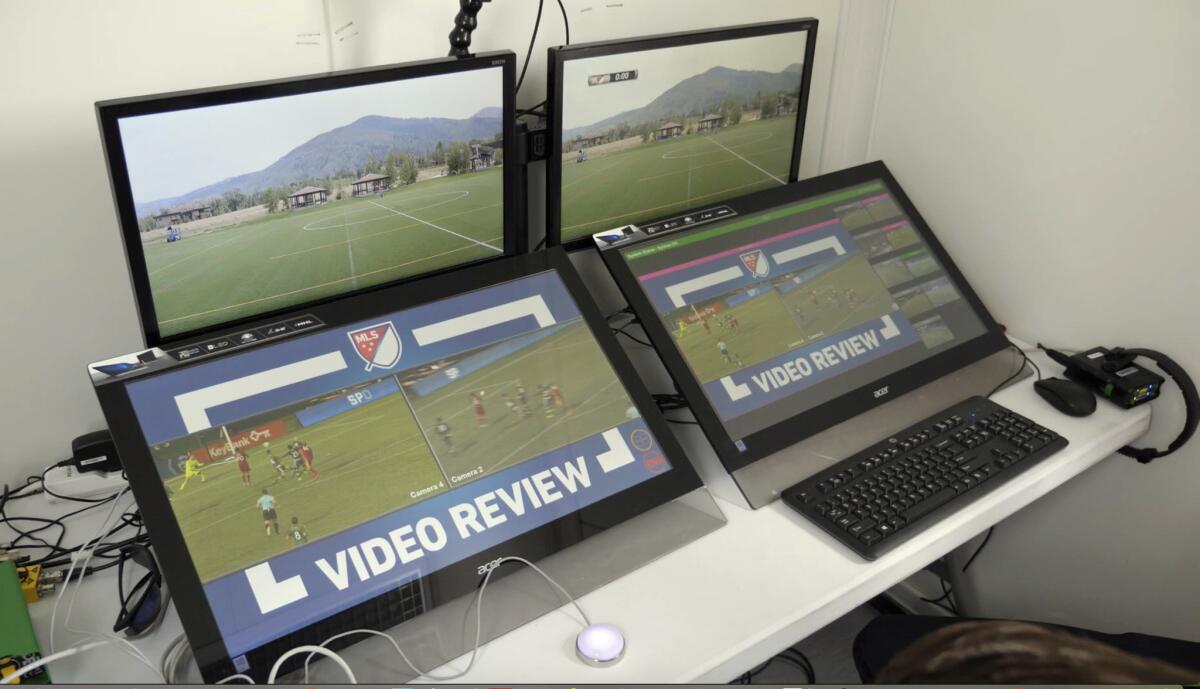
At that point the center referee, the only official who can overrule the original call, will step to the side of the pitch and check the broadcast feed. In the first weekend of video review, according to MLS, there were 112 checks but just two reviews, the one in the Galaxy game and another that erased a goal for FC Dallas.
The system, which is being used on a two-year trial basis, was game-tested in the U.S. in the second-tier USL. It will also be used this season in the German Bundesliga, Italy’s Serie A, Australia’s A League and South Korea’s K League, among other competitions. FIFA tried it recently in the 2016 Club World Cup, the U-20 World Cup and this summer’s Confederations Cup, where it got mixed reviews.
Because many of those other leagues begin play later in the year, MLS delayed implementation of the program until it was more than halfway through its schedule. That leaves the league playing its regular season under two sets of rules, opening the possibility a team could miss a playoff berth over a disallowed goal that would have counted before the adoption of the VAR.
“I would have started in January because of that exact reason,” said Taylor Twellman, a former league MVP who is an MLS analyst for ESPN. “Everything should start Jan. 1 so everybody’s on an even playing field.”
Despite that, Twellman likes the system — with one other reservation. VAR officials are limited to angles captured by the broadcasters of each game and those can differ widely since ESPN and Fox regularly use 13 cameras while local broadcasters may use far fewer.
Telecasts of English Premier League games commonly employ as many 25 cameras.
Yet despite the imperfections, Webb said he believes most officials are also welcoming of the system, which the Zurich-based IFAB could implement worldwide if the trial period goes well.
“It’s a chance to take comfort from the fact that you’re not going to make big mistakes,” he said. “Players make mistakes. That is very much part of the game. Officials make mistakes. But if we can find a way to avoid those mistakes, then why not introduce them?
“The game’s gotten faster, it’s gotten more difficult for officials to make accurate calls. And this system is going to help that without changing the way the game is played.”
Follow Kevin Baxter on Twitter @kbaxter11




